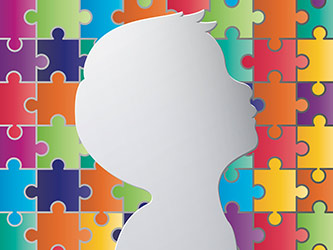Altered gut microbiome and autism like behavior are associated with parental high salt diet in male mice
Autism spectrum disorder (ASD) is the most common form of neurodevelopmental disorders (affecting 1% of the world’s population), but Afroz et al. (2021) reveal that the mechanisms by which ASD develops are largely unknown. Since research has emerged suggesting that the mother’s gut microbiome can affect neurodevelopment of the child in the womb, and because the composition of the gut microbiota can be modified by diet, this study theorized that ASD-like behavior could be linked to the mother’s diet during pregnancy and the associated change in gut microbes. A mouse model was used to investigate this hypothesis. After feeding expectant mothers with a high-salt diet, the offspring were assessed on their social and exploratory behaviors. Moreover, fecal samples were taken from the mothers, revealing the alteration in maternal gut microbiome after being initiated on the high-salt diet. The scientists also observed the same changes in the offspring’s’ gut microbiome. But more importantly, hyperactivity, increased repetitive behaviors, and social dysfunctions were reported in the male adult offspring of the mice fed the salt-enriched diet. In conclusion, the data implies that parental consumption of a high-salt diet was strongly correlated with behavioral abnormalities in the offspring that resembled ASD via modification of the gut microbiome. [NPID: ASD, Autism, Autism Spectrum Disorder, brain development, cognition, communication, social skills, neurodevelopmental disorders, high calorie, eating disorders, nutrient deficiencies, obesity, quality of life, animal, gut microbiome, social behavior, exploratory behavior, salt]
Year: 2021
Reference: https://www.nature.com/articles/s41598-021-87678-x
 Navigation
Navigation






